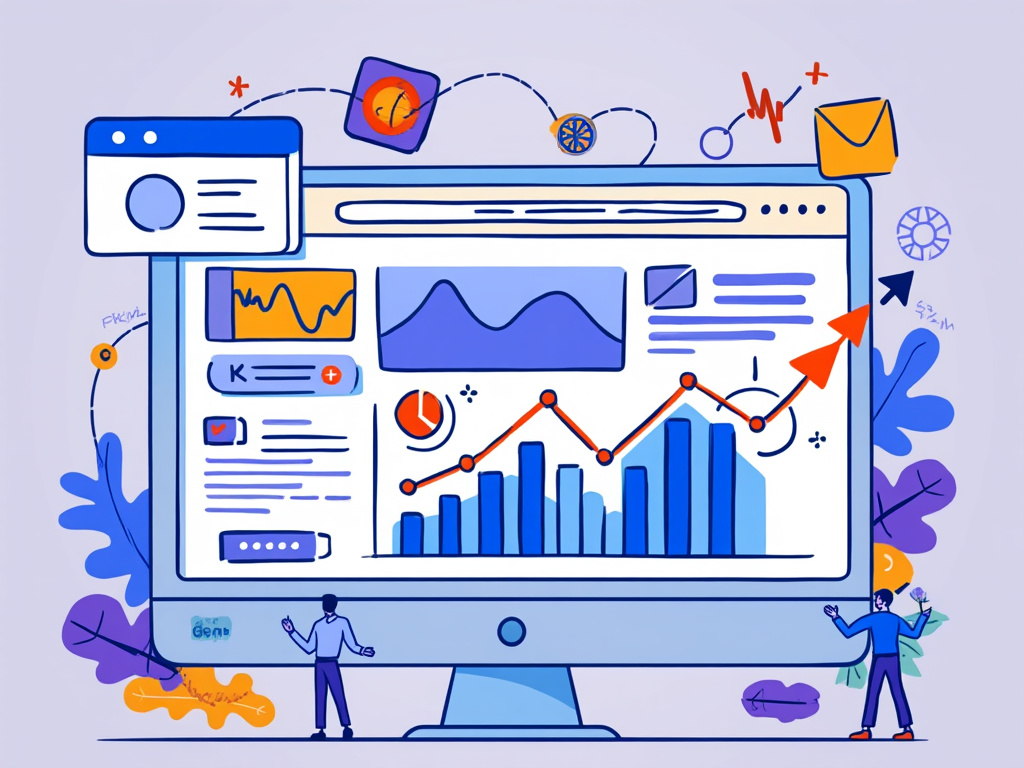How Data-Driven Management Empowers Your Marketing Toolkit

Understanding Data-Driven Management in E-Commerce
In the fast-paced realm of e-commerce, where competition is fierce and customer preferences can shift overnight, leveraging data is no longer optional—it’s essential. Data-driven management allows e-stores to make informed decisions, predict trends, and optimize marketing strategies that resonate with their target audience. Imagine having the ability to see beyond surface metrics and deep into the habits, preferences, and behaviors of your customers. This is the power of data-driven management, creating an impactful tool for growth and sustainability.
Transforming Insights into Action
One of the most exciting aspects of employing a data-driven approach is the transformation of raw data into actionable insights. Whether it’s understanding which product categories are gaining traction, identifying peak shopping times, or gauging customer satisfaction, these insights empower e-store owners to make decisions that drive sales.
Here’s how you can leverage these insights effectively:
- Customer Segmentation: Divide your customer base into segments based on buying patterns, preferences, and demographics. This allows for targeted marketing campaigns that resonate deeply with each group.
- Personalized Experiences: Utilize the insights to craft personalized email campaigns, product recommendations, and promotions that cater to individual customer preferences. With a tool like Incomaker, you can automate this process, ensuring each customer receives tailored communications.
- Trend Analysis: Keep an eye on emerging trends by analyzing browsing and purchasing behaviors. Quick adaptation to market changes can be the difference between leading the pack and falling behind.
Integrating Tools for a Holistic Approach
The integration of multiple tools into your marketing arsenal further enhances your data-driven strategies. You might have an analytics tool to track website performance, a customer relationship management (CRM) system for managing customer interactions, and social media metrics to gauge your online presence. When these tools communicate and share data, you create a comprehensive ecosystem that offers unmatched insights.
When it comes to email marketing, platforms like Incomaker play a pivotal role. With its automation capabilities, you can set up workflows based on customer behavior. For instance, if a customer leaves items in their cart, Incomaker allows you to trigger an automated email reminding them of their selections. This type of strategy can significantly improve conversion rates and ensure your marketing efforts don’t go unnoticed.
Utilizing Analytics for Continuous Improvement
The beauty of a data-driven approach is the continuous feedback loop that it creates. E-commerce is as much about experimentation as it is about statistics. By tracking and analyzing your marketing campaigns, you can make real-time adjustments, optimizing every element to ensure maximum effectiveness.
Consider these practices for continuous improvement:
- A/B Testing: Experiment with different email subject lines, promotional offers, and even product placements on your website. Monitor the outcomes to identify what works best for your audience.
- Customer Feedback: Incorporate surveys and feedback mechanisms to understand customer sentiment. This qualitative data, alongside quantitative metrics, provides a fuller picture of your performance.
- Regular Review of Metrics: Set aside time weekly or monthly to review your key performance indicators (KPIs). Understanding trends over time can help you identify long-term success rates and areas needing adjustment.
The Future of E-Commerce Marketing
As we progress into a future driven by technological advancement, the role of data in e-commerce will only expand. The landscape is not going to become less competitive; instead, it’s likely to become more dynamic, requiring savvy marketing strategies fortified by data analytics.
Adopting a data-driven management approach means committing to a culture of growth and adaptability. By continuously analyzing customer behavior and feedback, integrating effective tools, and implementing focused marketing strategies, your e-store can unlock steady growth and remain resilient in the face of market changes.
In an age where the customer experience dictates success, understanding and utilizing data is the key to enhancing that experience. Embrace the data-driven revolution in your marketing toolkit, and watch your e-store thrive.



